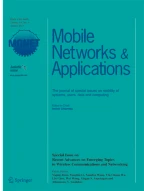Abstract
To improve the accuracy and robustness of data feature mining, a highly reliable and robust feature mining method for university education data based on dynamic semantic memory network is proposed. Firstly, educational data was collected and extracted; Secondly, the range transformation method is used to transform and process scattered data, achieving reasonable classification of data feature attributes. Then, based on the classified results, the k-nearest neighbor method is used to perform equivalent classification on the data subset, reducing the search range for optimal values. And use floating search to reduce feature dimensionality. Finally, remove educational interference information data, update the position and step size of information elements in college English education data, and optimize the feature mining function of dynamic semantic memory network data using Levy function based on this to achieve highly reliable and robust mining. The experimental results show that the method proposed in this paper can maintain high data feature mining accuracy and robustness under both 5G network overload and attack intensity states; And it effectively improves the recall rate of data feature mining, with high reliability of data feature mining features.
Similar content being viewed by others
Data Availability
Not applicable.
References
Liang Z, Zhang G, Qiao S (2021) Research and Practice of Informatization Teaching Reform Based on Ubiquitous Learning Environment and Education Big Data. Open J Soc Sci 09(2):334–341
Wang J, Zhao B (2021) Intelligent system for interactive online education based on cloud big data analytics. J Intell Fuzzy Syst 163(2):40–55
Wang HJ, Wang Z (2022) Design of Simulation Teaching System Based on Virtual Reality. Comput Simulat 39(4):205–209
Matas-Terrón A, Leiva-Olivencia JJ, Negro-Martínez C (2020) Tendency to Use Big Data in Education Based on Its Opportunities According to Andalusian Education Students. Soc Sci 9(9):164–169
Almalki A, Wocjan P (2021) Accuracy analysis of educational data mining using feature selection algorithm. arXiv preprint arXiv:2107.10669 9(21):122-130
Gan X, Tang X (2021) Time series data association rule mining model based on CNN. Computer Simulation 38(3):282–285+326
Liu W, Li X (2020) Research on Model Driven Terminal Online Education Data Mining Technology. Modern Electronic Technology 43(16):112–114+118
Li Y, Qi X, Saudagar AKJ et al (2023) Student behavior recognition for interaction detection in the classroom environment. Image Vis Comput 136(02):104726–104738
He Y, Zhu J, Fu W (2022) A credible predictive model for employment of college graduates based on LightGBM. EAI Endorsed Trans Scalable Inform Syst 22(6):4–16
Peng P, Fu W (2022) A Pattern Recognition Method of Personalized Adaptive Learning in Online Education. Mobile Netw Appl 27(3):1186–1198
Peng C, Zhou X, Liu S (2022) An introduction to artificial intelligence and machine learning for online education. Mobile Netw Appl 27(3):1147–1150
Wang S, Liu X, Liu S et al (2022) Human short-long term cognitive memory mechanism for visual monitoring in iot-assisted smart cities. IEEE Internet Things J 9(10):7128–7139
Liu S, Wang S, Liu X et al (2021) Human memory update strategy: a multi-layer template update mechanism for remote visual monitoring. IEEE Trans Multimed 23:2188–2198
Kaharuddin K, Sholeha EW (2021) Classification of fish species with image data using k-nearest neighbor. Int J Comput Inform Syst 2(2):54–58
Thamm M, Staats M, Rosenow B (2022) Random matrix analysis of deep neural network weight matrices. Phys Rev E 106(5):054124–054129
Song T, Chen M, Xu Y, Dong W, Xue KS, Xiang YT (2021) Competition-guided multi-neighborhood local search algorithm for the university course timetabling problem. Appl Soft Comput 110(28):107624–107628
Liu S, Huang S, Wang S et al (2023) Visual tracking in complex scenes: a location fusion mechanism based on the combination of multiple visual cognition flows. Information Fusion 96(16):281–296
Hossain MT, Teng SW, Lu G, Rahman MA, Sohel F (2023) Anti-aliasing Deep Image Classifiers using Novel Depth Adaptive Blurring and Activation Function. Neurocomputing 536:164–174
Wei W, Fan X, Song H et al (2016) Imperfect information dynamic stackelberg game based resource allocation using hidden Markov for cloud computing. IEEE Trans Serv Comput 11(1):78–89
Cunningham P, Delany SJ (2021) K-Nearest Neighbour Classifiers - A Tutorial. ACM Comput Surv 54(6):128–152
Acknowledgements
The paper was funded by National Social Science Foundation of China with No. 21BMZ127; as well as Research Project of the Higher Education Teaching Reform of the National People's Committee of China with No.21077.
Author information
Authors and Affiliations
Contributions
Dan Zhou wrote the main manuscript text, Mohamed Baza review the paper and point the direction, Amar Rasheed provide some experiments. All authors reviewed the manuscript.
Corresponding author
Ethics declarations
Ethics Declarations
N/A.
Competing Interests
The authors declare no competing interests.
Additional information
Publisher's Note
Springer Nature remains neutral with regard to jurisdictional claims in published maps and institutional affiliations.
Rights and permissions
Springer Nature or its licensor (e.g. a society or other partner) holds exclusive rights to this article under a publishing agreement with the author(s) or other rightsholder(s); author self-archiving of the accepted manuscript version of this article is solely governed by the terms of such publishing agreement and applicable law.
About this article
Cite this article
Zhou, D., Baza, M. & Rasheed, A. Highly Reliable Robust Mining of Educational Data Features in Universities Based on Dynamic Semantic Memory Networks. Mobile Netw Appl 28, 1772–1782 (2023). https://doi.org/10.1007/s11036-023-02250-3
Accepted:
Published:
Issue Date:
DOI: https://doi.org/10.1007/s11036-023-02250-3
